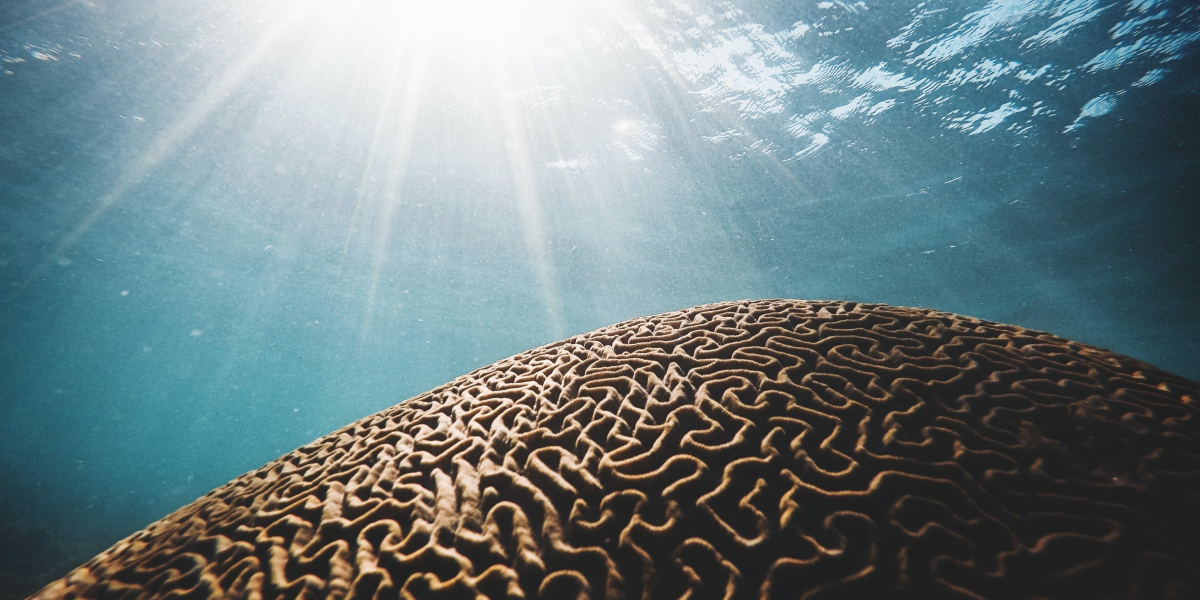
Effects of meditation in patients with chronic pain
Ever since mindfulness became a well-known concept in medical research around 1985, studies of meditation and pain have been central to today’s contemplative neuroscience.
Below is a table with an updated overview of the neurological effects meditation has on pain.
The main source is the study Neuromodulatory treatments for chronic pain: efficacy and mechanisms published in Nature in 2014, but the number of studies has grown since then. The most important updates are a greater insight into how the default mode network works in relation to pain and the recognition that pain perception changes occur via several unique brain mechanisms even after only one week of training for inexperienced meditators.
I have added two columns to the original table. Firstly, I have simplified the technical, medical language, so it becomes easier to read. And on the far right, there is a column that describes the effects through concepts we use in mindfulness teaching.
In addition to these brain functions, meditation has several other effects on the body that affect chronic pain: reducing inflammation and regulating stress hormones, sleep, blood pressure, and heart rate. A particularly interesting study in today’s opioid crisis shows that meditation’s pain-reducing effect does not come from the body’s own opiates.
If you want to learn more, I have previously written a basic description of how meditation helps with chronic pain and an introduction to meditation as pain relief.
Sources
Jensen, MP et al. Neuromodulatory treatments for chronic pain: efficacy and mechanisms Nat. Fox. Neurol. 10, 167–178 (2014); published online 18 February 2014; doi: 10.1038 / nrneurol.2014.12
Fjorback, LO, Arendt, M., Ornbøl, E., Fink, P. & Walach, H. Mindfulness ‑ based stress reduction and mindfulness ‑ based cognitive therapy: a systematic review of randomized controlled trials. Acta Psychiatr. Scand. 124, 102–119 (2011).
Grossman, P., Niemann, L., Schmidt, S. & Walach, H. Mindfulness ‑ based stress reduction and health benefits. A meta ‑ analysis. J. Psychosom. Res. 57, 35–43 (2004).
Keng, SL, Smoski, MJ & Robins, CJ Effects of mindfulness on psychological health: a review of empirical studies. Clin. Psychol. Fox. 31, 1041–1056 (2011).
Teixeira, E. The effect of mindfulness meditation on painful diabetic peripheral neuropathy in
adults older than 50 years. Holist. Nurs. Pract. 24, 277–283 (2010).
Zeidan, F., Grant, JA, Brown, CA, McHaffie, JG & Coghill, RC Mindfulness meditation ‑ related pain relief: evidence for
unique brain mechanisms in the regulation of pain. Neurosci. Easy. 520, 165–173 (2012).
Zeidan, F. et al. Brain mechanisms supporting the modulation of pain by mindfulness meditation. J. Neurosci. 31, 5540–5548 (2011).
Davidson, RJ & Goleman, DJ The role of attention in meditation and hypnosis: a psychobiological perspective on transformations of consciousness. Int. J. Clin. Exp. Hypn. 25, 291–308 (1977).
Carmody, J. & Baer, RA Relationships between mindfulness practice and levels of mindfulness, medical and psychological symptoms and well‑ being in a mindfulness ‑ based stress reduction program. J. Behav. With. 31, 23–33 (2008).
Garland, EL et al. Therapeutic mechanisms of a mindfulness ‑ based treatment for IBS: effects on visceral sensitivity, catastrophizing, and affective processing of pain sensations. J. Behav. With. 35, 591–602 (2012).
Brown, CA & Jones, AK Meditation experience predicts less negative appraisal of≈pain: electrophysiological evidence for the involvement of anticipatory neural responses. Pain 150, 428–438 (2010).
Grant, JA, Courtemanche, J. & Rainville, P. A non ‑ elaborative mental stance and decoupling of executive and pain ‑ related cortices predicts low pain sensitivity in Zen meditators. Pain 152, 150–156 (2011).
Holzel, BK et al. Mindfulness practice leads to increases in regional brain gray matter density. Psychiatry Res. 191, 36–43 (2011).
Fell, J., Axmacher, N. & Haupt, S. From alpha to gamma: electrophysiological correlates of meditation ‑ related states of consciousness. With. Hypotheses 75, 218–224 (2010).
Ives ‑ Deliperi, VL, Solms, M. & Meintjes, EM The neural substrates of mindfulness: an fMRI investigation. Soc. Neurosci. 6, 231–242 (2011).
Craig, AD How do you feel — now? The anterior insula and human awareness. Nat. Fox. Neurosci. 10, 59–70 (2009).
Critchley, HD, Wiens, S., Rotshtein, P., Ohman, A. & Dolan, RJ Neural systems supporting interoceptive awareness. Nat. Neurosci. 7, 189–195 (2004).
Lutz, A., McFarlin, DR, Perlman, DM, Salomons, TV & Davidson, RJ Altered anterior insula activation during anticipation and experience of painful stimuli in expert meditators. Neuroimage 64, 538–546 (2013).
Grant, JA, Courtemanche, J., Duerden, EG, Duncan, GH & Rainville, P. Cortical thickness and pain sensitivity in zen meditators. Emotion 10, 43–53 (2010).
Rainville, P., Carrier, B., Hofbauer, RK, Bushnell, MC & Duncan, GH Dissociation of sensory and affective dimensions of pain using
hypnotic modulation. Pain 82, 159–171 (1999).
May, A. Chronic pain may change the structure of the brain. Pain 137, 7–15 (2008).
Cahn, BR & Polich, J. Meditation states and traits: EEG, ERP, and neuroimaging studies. Psychol. Bull. 132, 180–211 (2006).
Aftanas, LI & Golocheikine, SA Human anterior and frontal midline theta and lower alpha reflect emotionally positive state and internalized attention: high ‑ resolution EEG investigation of meditation. Neurosci. Easy. 310, 57–60 (2001)
Zeidan F, Emerson NM, Farris SR, Ray JN, Jung Y, McHaffie JG and Coghill RC: Mindfulness meditation-based pain relief employs different neural mechanisms than placebo and sham mindfulness meditation-induced analgesia. The Journal of Neuroscience, 35: 15307–15325, 2015.
Zeidan F and Vago D: Mindfulness meditation – based pain relief: a mechanistic account. Ann NY Acad Sci. 1373: 114–127, 2016.
Zeidan F, Salomons T, Farris SR, Emerson NM, Adler- Neal, A, Jung Y, Coghill RC. Neural Mechanisms Supporting the Relationship between Dispositional Mindfulness and Pain. PAIN, 2018; 1 DOI: 10.1097 / j.pain.0000000000001344